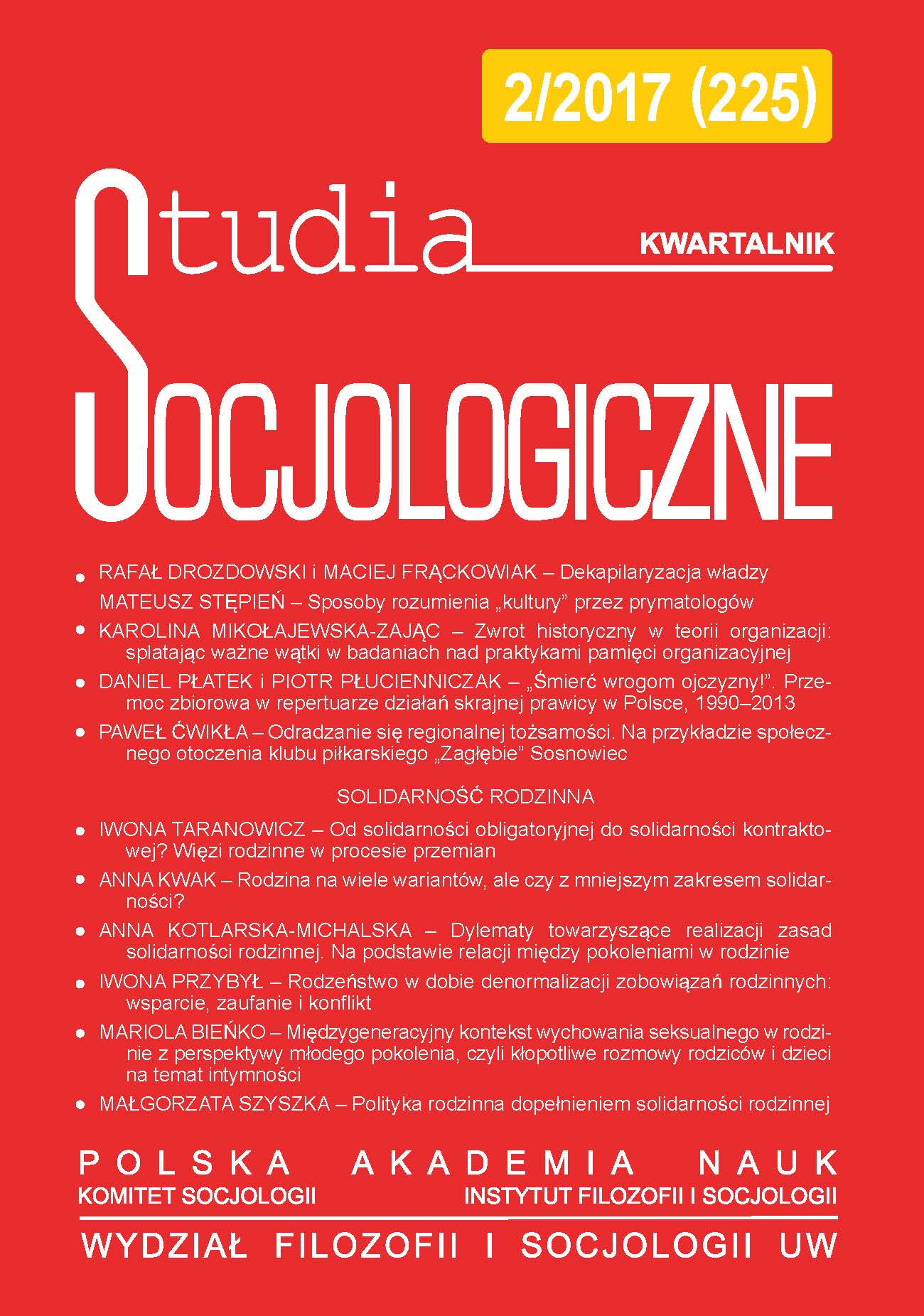„Śmierć wrogom ojczyzny!”. Przemoc zbiorowa w repertuarze działań skrajnej prawicy w Polsce, 1990–2013
“Death to Enemies of the Homeland!” The Repertoire of Violence in the Collective Actions of the Extreme Right in Poland, 1990–2013
Author(s): Daniel Płatek, Piotr PłucienniczakSubject(s): Nationalism Studies
Published by: Instytut Filozofii i Socjologii Polskiej Akademii Nauk
Keywords: extreme right; social movements; collective violence; protest event analysis; logistic regression
Summary/Abstract: In the immediate aftermath of the fall of communism in Poland in 1989, popular discussions of the reemergence of the extreme right centered on concerns that it would take the form of ultra-nationalism or post-communist national populism (Pankowski 2009). However, these discussions mainly emphasized sensational events involving militant skinheads and tended to stress the cultural specificity of the nationalist movement. The perceived risk from the extreme right has contributed to the creation of a sociological explanation focused on a restricted number of arguments. Phenomena such as the rise of nationalism and extremism were in fact considered (at the macro level) to be aggressive reactions to frustrations resulting either from the rapid end to a period of economic stabilization and increased expectations or (at the micro level) from status inconsistency. In our article we suggest that Poland’s extreme right should be analyzed as a social movement, with a focus on the meso-organizational and action level, as this has never been done before.Looking at the broad spectrum of actors in the extreme-right milieu, we analyze their forms of action with the aim of understanding the use of violent versus non- violent forms of action. We study factors that influence the scale of violence employed by the extreme right and verify the thesis that the violence decreases in periods when the movement undergoes a process of formalization, i.e., enters parliamentary politics, and increases otherwise. The paper is based on political opportunity theory and analysis of protest events in the years 1990–2013.
Journal: Studia Socjologiczne
- Issue Year: 225/2017
- Issue No: 2
- Page Range: 73-107
- Page Count: 35
- Language: Polish

